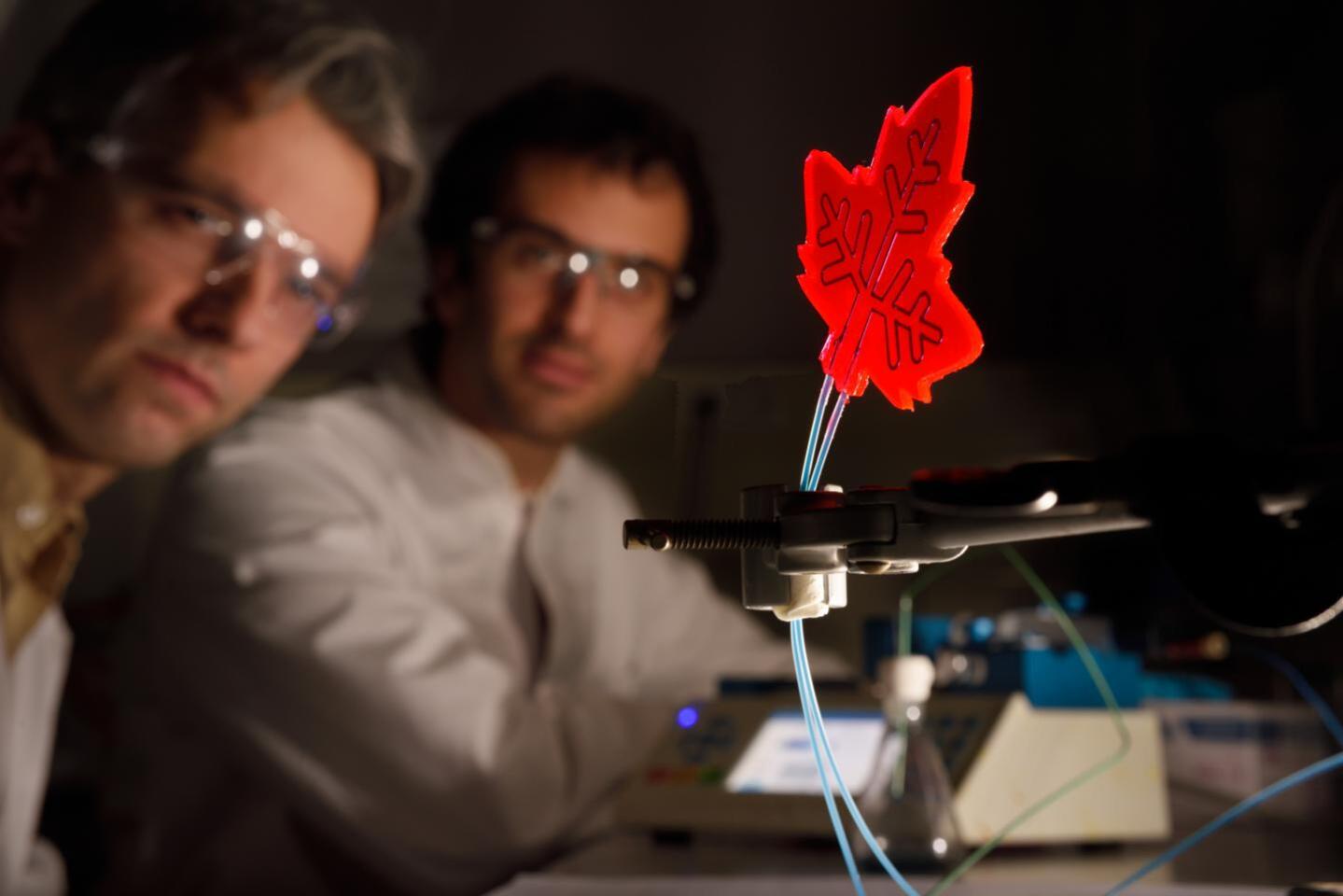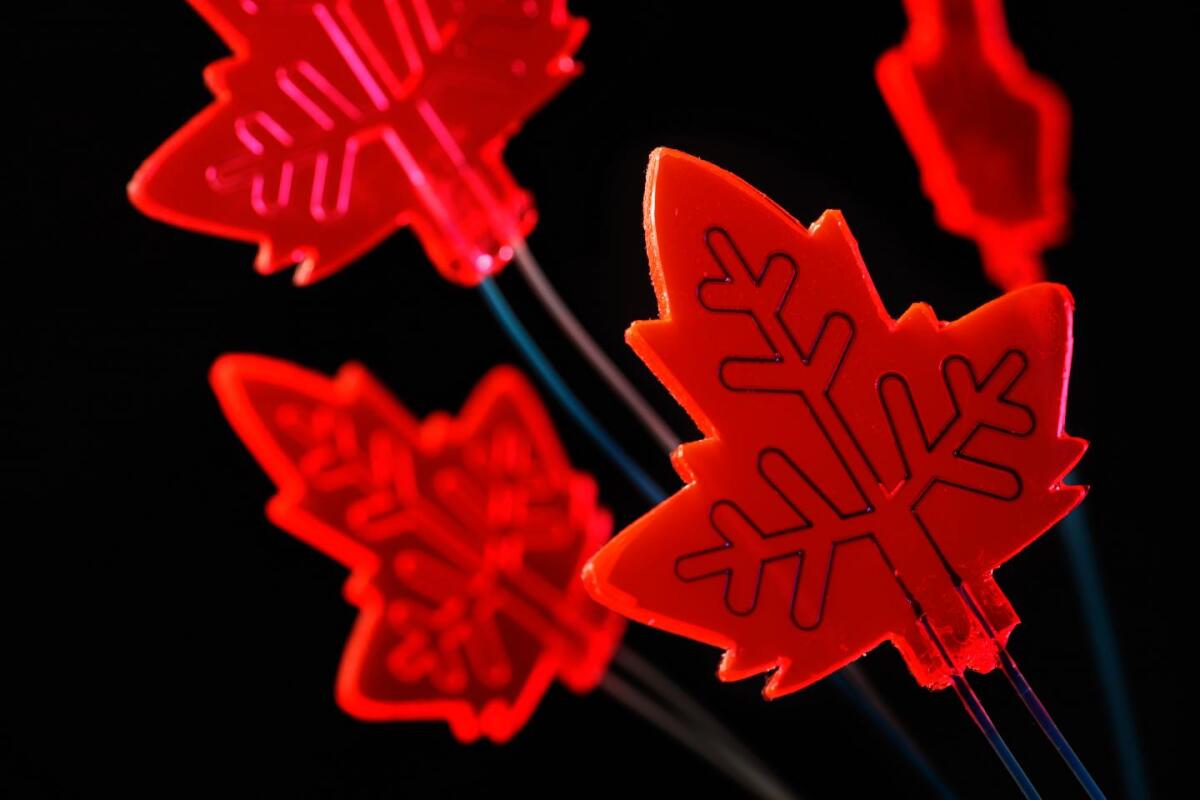Leaves are kind of like nature's power plants, converting incoming sunlight into energy for the plant to thrive on. Inspired by the real thing, scientists have previously created artificial leaves that function in much the same way as their natural counterparts to produce electricity and even liquid fuels. Now a team at Eindhoven University of Technology (TU/e) is using a similar system to produce chemicals, which could one day lead to solar-powered "mini-factories" that can produce drugs, pesticides and other chemicals almost anywhere.
To mimic the light-capturing molecules in leaves, the researchers turned to luminescent solar concentrators (LSCs), materials seen in solar-harvesting window technology and used to catch and amplify laser beams carrying data in Facebook's drone-mounted internet project. These LSCs absorb incoming light, convert it to specific wavelengths and then guide the photons to the edges of the device.
The TU/e team's take on the idea was to create a leaf-shaped device, made from a silicon rubber LSC, with a thin channel running through it like the veins in a leaf. As chemicals are pumped through the channel, the LSC material directs sunlight towards it, and the high intensity of the sunlight can trigger a chemical reaction with the liquid in the channel. Essentially, one substance enters, and by the time it comes out the other end, the device will have converted it into a different chemical, which may be useful as a drug, fuel or other agent.

"Using a reactor like this means you can make drugs anywhere, in principle, whether malaria drugs in the jungle or paracetamol on Mars," says Timothy Noël, lead researcher on the study. "All you need is sunlight and this mini-factory."
These devices could prove a useful alternative to other means of drug production, which can require toxic chemicals and plenty of energy usually produced by fossil fuels. In early tests, the mini-factories exceeded the team's expectations for efficiency.
"Even an experiment on a cloudy day demonstrated that the chemical production was 40 percent higher than in a similar experiment without LSC material," says Noël. "We still see plenty of possibilities for improvement. We now have a powerful tool at our disposal that enables the sustainable, sunlight-based production of valuable chemical products like drugs or crop protection agents."
The research was published in the journal Angewandte Chemie. The team explains the device in the video below.
Source: Eindhoven University of Technology





